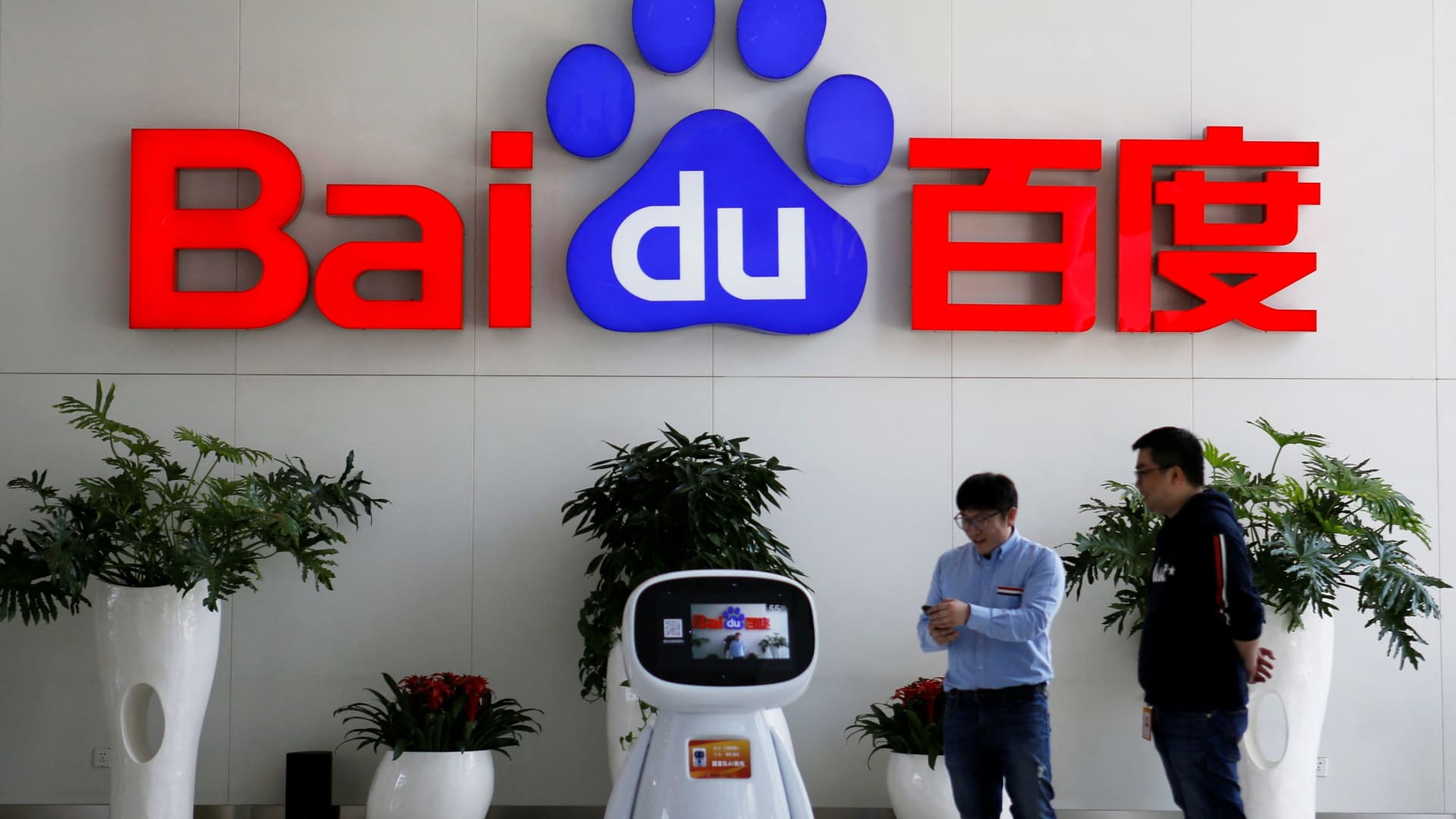Baidu Rises as China’s New AI Chip Contender
Baidu Rises as China’s New AI Chip Contender
By
Calder Monroe
Last updated:
November 28, 2025
First Published:
November 28, 2025

Photo: CNBC
China’s Shifting AI Chip Landscape
Baidu is rapidly transforming from a search engine pioneer into one of China’s most important artificial intelligence hardware suppliers. Analysts across major research firms now view the company as a key domestic force capable of filling the widening gap left by Nvidia, whose most advanced GPUs remain restricted from sale in China. In a market strained by shortages and geopolitical constraints, Baidu’s in-house chip division, Kunlunxin, is beginning to attract substantial attention — and more importantly, significant local demand.
Beijing’s push for domestic innovation in semiconductors is intensifying. With the Chinese government encouraging tech giants to adopt homegrown processors, Baidu’s chip momentum has become a central pillar in the country’s AI strategy. Tencent, Alibaba, JD.com and others have reported tightening chip supplies, further underscoring the urgency for reliable, locally produced alternatives.
Kunlunxin: Baidu’s High-Stakes Bet on AI Hardware
Once known primarily for online search, Baidu has spent the last several years rebranding itself around autonomous driving and large-scale AI systems. A major piece of this pivot is Kunlunxin, a majority-owned semiconductor subsidiary designing high-performance AI processors for data centers, model training, cloud systems and telecom workloads.
Analysts recently upgraded their outlook on Baidu stock after the company unveiled a five-year roadmap for the next generations of Kunlun chips. The roadmap begins with the M100 in 2026 and advances to the more powerful M300 in 2027. These chips are already being used alongside Nvidia processors inside Baidu’s data centers to support the company’s ERNIE AI models.
Baidu’s chip business generates revenue both through direct sales to companies building data centers and through its cloud platform, where it rents out computing power to AI developers. This dual approach positions Baidu as a full-stack AI infrastructure provider, delivering chips, servers, data centers, models and applications under one ecosystem.
Early commercial traction is emerging. Kunlunxin recently secured orders from suppliers working with China Mobile, one of the country’s largest telecom operators. Deutsche Bank analysts described Kunlunxin as “a leading domestic AI chip developer” capable of supporting large language models, cloud computing and enterprise workloads.
The Nvidia Gap and China’s Need for Domestic Alternatives
Nvidia’s high-end GPUs remain the global standard for training and running complex AI systems. However, U.S. export restrictions have blocked China from purchasing the company’s most advanced chips, while Beijing has reportedly discouraged firms from buying the downgraded H20 model designed for the Chinese market.
Huawei has made progress with its own Ascend series, but its supply remains limited due to U.S. sanctions and manufacturing constraints, leaving a significant vacuum in the domestic market. Analysts now increasingly point to Baidu as a leading candidate to fill that vacuum.
JPMorgan expects Baidu’s chip sales to multiply sixfold, reaching approximately 8 billion yuan by 2026. Macquarie analysts estimate Kunlunxin could ultimately carry a valuation of about $28 billion if growth continues at the current pace.
China’s Broader Semiconductor Challenges
Despite strong demand, China faces deep structural challenges. Alibaba’s CEO Eddie Wu recently warned that ongoing component shortages will continue for two to three years. Tencent echoed this sentiment, saying its capital expenditure outlook has been constrained by chip availability, not by declining interest in AI.
Global semiconductor bottlenecks, paired with U.S. export restrictions, have forced Chinese companies to ration stockpiled GPUs and redesign models for greater efficiency. Meanwhile, China’s top contract chipmaker, SMIC, remains technologically behind industry leaders such as TSMC, limiting domestic production capacity for high-end processors.
Still, demand for AI computing in China continues to grow aggressively. Companies across cloud, telecommunications and e-commerce are racing to deploy new servers, and many cannot install them fast enough to keep up with customer needs.
A Strategic Opportunity for Baidu
Industry experts say this environment gives Baidu a significant opening. With reduced access to U.S. hardware and incomplete domestic manufacturing capabilities, Chinese companies increasingly rely on homegrown chip solutions that comply with both U.S. export rules and China’s national strategy for technological self-reliance.
Nick Patience of The Futurum Group summarized the opportunity: Baidu’s chip efforts are simultaneously a necessity and a strategic advantage. If Kunlunxin can deliver its next-generation chips on schedule and at competitive performance levels, it could become not only Baidu’s internal lifeline but also a foundational supplier for the rest of China’s AI industry.
In a market undergoing rapid transformation — and facing unprecedented supply pressures — Baidu’s rise as an AI chip contender signals a new era in China’s technological ambitions.
Popular articles
Subscribe to unlock premium content
Frozen Riches on Kamchatka

Frozen Opulence in Lapland

Crystal Dreams in the Salt Flats

Frozen Riches on Kamchatka

Frozen Opulence in Lapland

Frozen Riches on Kamchatka









